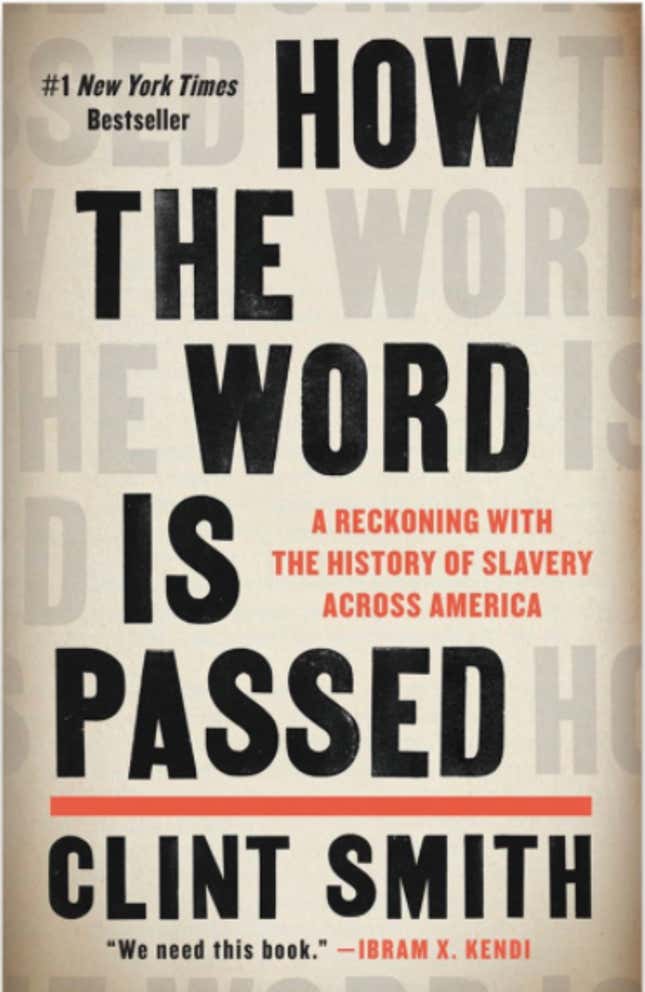
It has been over 400 years since the first enslaved Africans arrived on the shores of what would become the United States of America—but as both our past and present have proven, its legacy remains writ large upon virtually every aspect of American life. Our cities, our schools, our prisons, our monuments and more stand as constant reminders of this country’s foundational basis in human bondage and oppression—a truth it is still reluctant to truly reckon with.
Yet, this is exactly the reckoning journalist, author and poet Clint Smith III attempts in his instant No. 1 New York Times bestseller How the Word Is Passed: A Reckoning with the History of Slavery Across America. As he tells us in this week’s episode of The Root Presents: It’s Lit!, the book, which visits eight locations that were pivotal in perpetuating slavery and its aftermath, was an opportunity to give voice to the often voiceless yet foundational legions of enslaved Blacks in America.
“[A]s important as it is to read the stories of Frederick Douglass, to hear the stories of Harriet Tubman, to read the stories of Harriet Jacobs and Olaudah Equiano and so many others...the vast majority of enslaved people did not escape,” Smith reminds us. “The vast majority of enslaved people did not fight their slave-breaker. The vast majority of enslaved people did not learn how to read. The vast majority of people were people, who were trying to carve out opportunity and meaning and purpose and love in their lives in the midst of just unfathomable circumstances,” he added. “I think that those narratives are so powerful and for me are also an entry point to a broader set of narratives that should be taken just as seriously.”

In giving life to many of those lost narratives, Smith goes on a journey that begins at Thomas Jefferson’s Monticello Plantation in Virginia, “the estate where [he] wrote letters espousing the urgent need for liberty while enslaving over 400 people on the premises.” Readers also travel with Smith to his native Louisiana, first to the Whitney Plantation for a transformative reframing of the slavery narrative, and then on to an unflinching look at the infamous plantation-turned maximum security prison Angola, which still houses a predominantly Black population. And underneath the financially-fueled metropolis that is New York City lie the bones of its enslaved population, proving this Northern center of industry is as deeply rooted in the legacy of slavery as any stronghold of the Confederacy. For Smith, excavating the stories of these places is as significant as the removal of any Confederate monument.
“They are reflective of the stories that society is telling. Those stories embed themselves into the narratives that communities carry, and those narratives shape public policy, and public policy shapes the material conditions of people’s lives,” he explains, adding: “these things are all part of an ecosystem of ideas and stories that shape how we understand what has happened to communities and what communities need moving forward to make amends for what has happened.”
Hear more from the inquisitive Clint Smith in Episode 41 of The Root Presents: It’s Lit!: Clint Smith Tells Us ‘How the Word Is Passed’, available on Apple, Spotify, Stitcher, iHeart Radio, Google Podcasts, Amazon, NPR One, TuneIn, and Radio Public.

